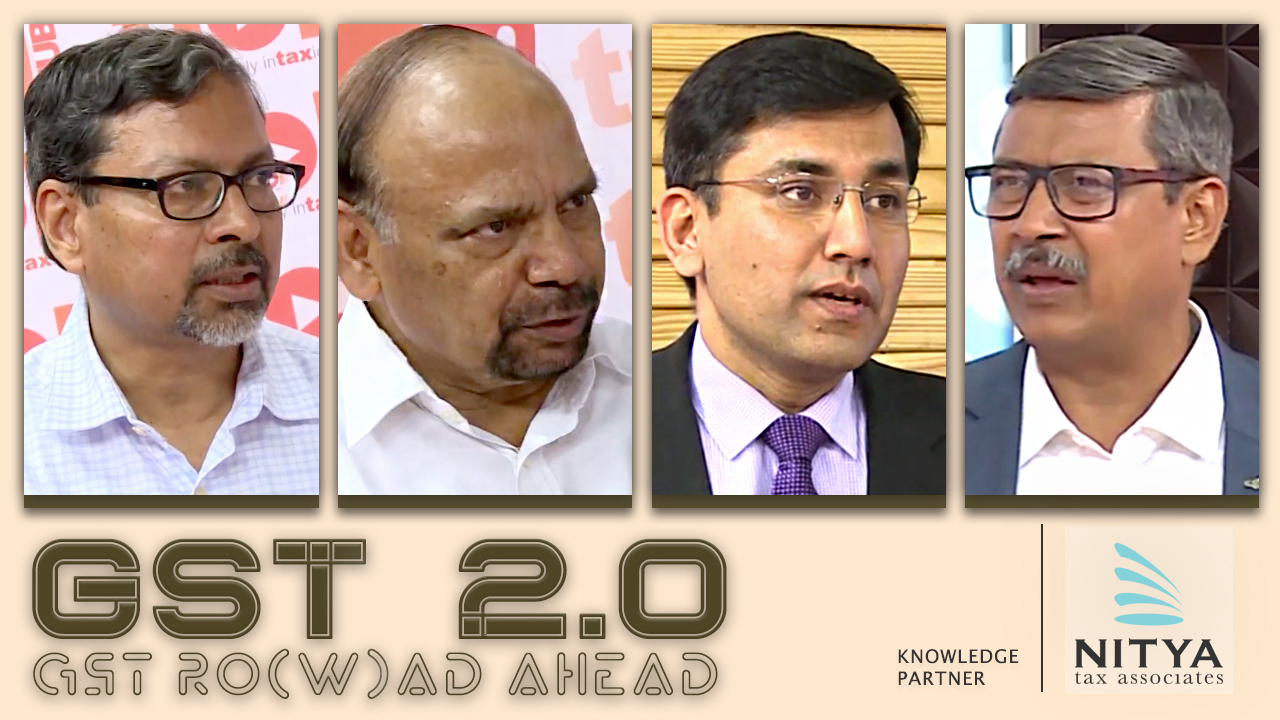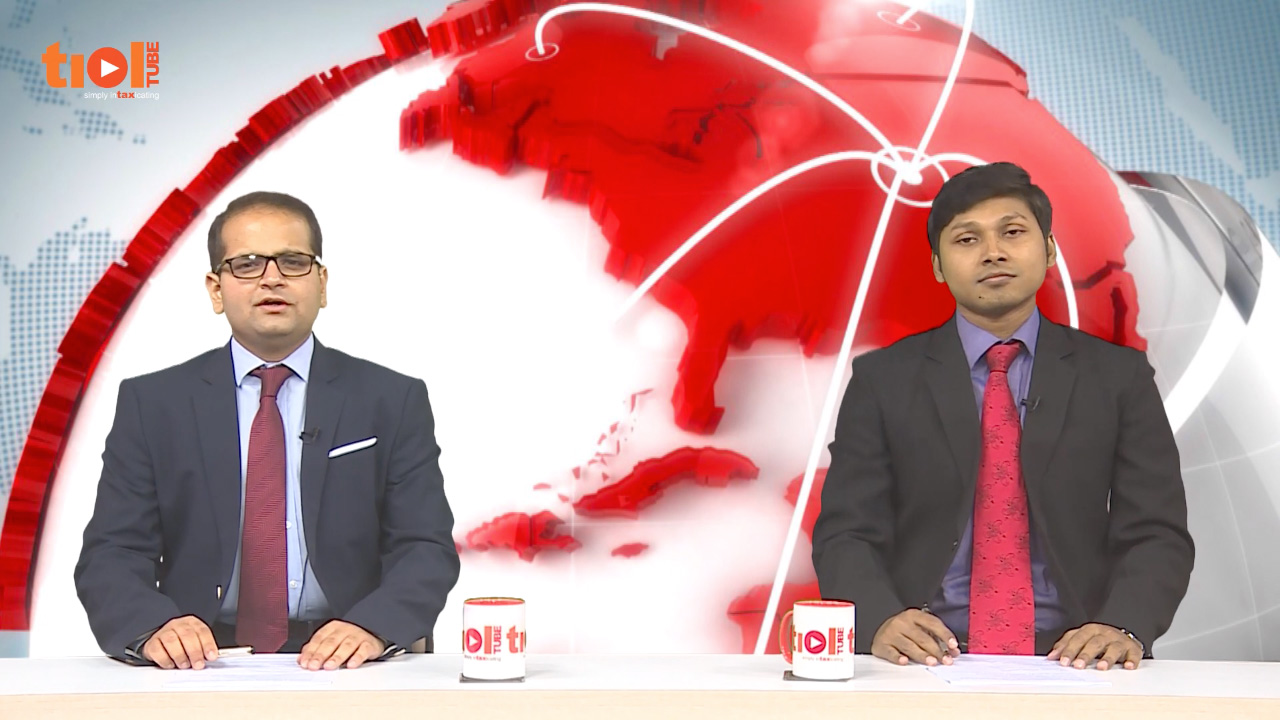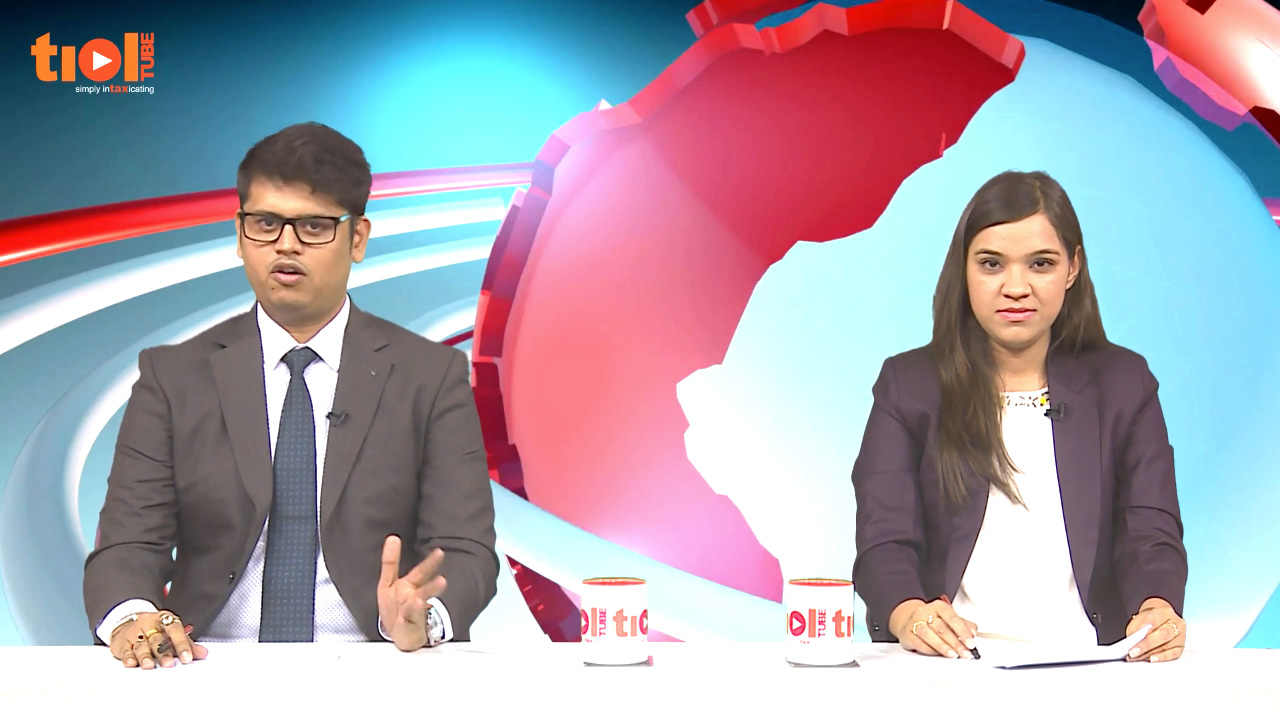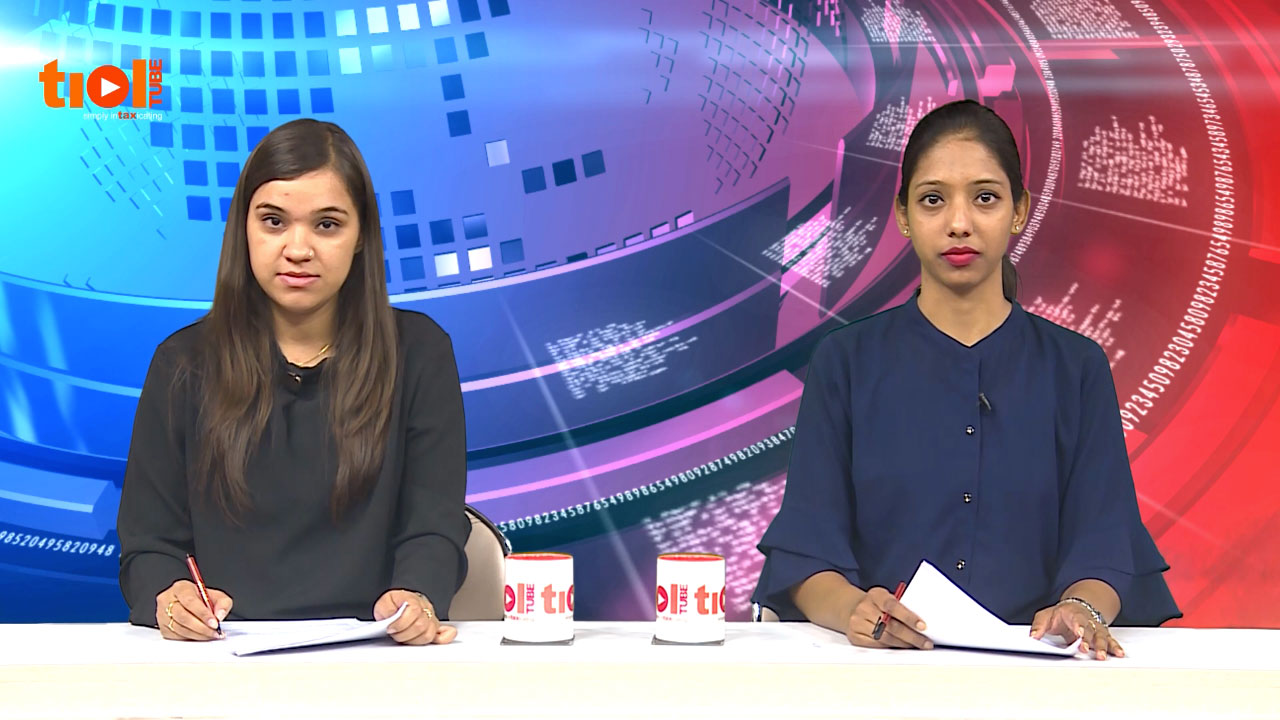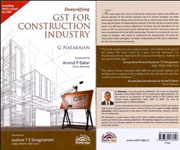|
SERVICE TAX
2019-TIOL-1128-HC-CHHATTISGARH-ST
Brandavan Food Products Vs Commissioner
ST - A statutory appeal was preferred before the Commissioner (Appeals) which is belated by 253 days and hence, it was sought to be condoned by filing a petition to condone the delay - Commissioner (Appeals) found that as per the relevant provisions of the statute, the appeal had to be filed within 'two months' and thereafter, the delay, if any could be condoned to a maximum period of 'one month', on offering sufficient cause - As the appeal was filed belatedly even beyond the condonable extent, the appellate authority dismissed the application for condonation of delay holding that there was no power to condone the said extent of delay and as a natural consequence, the appeal as well - CESTAT also took the very same stand as taken by the Commissioner (Appeals) and the appeals came to be dismissed - Appellants approached the High Court by filing writ petitions referring to the sequence of events and trying to explain the delay, particularly in connection with the demise of the mother of the authorised signatory and also with reference to the unforeseen situations that resulted in connection with the marriage of the daughter of the deponent and also the registration of a crime in connection with the affairs - Single Judge held that the issue involved was no longer res integra as concluded/declared by the Apex Court in Singh Enterprises = 2007-TIOL-231-SC-CX ; that no extraordinary circumstance was substantiated by the Appellant/Petitioner to warrant interference by invoking the powers of the High Court under Article 226 of the Constitution of India, in turn leading to dismissal of the writ petitions - Writ appeal filed against the Single Judge order. Held: It is true that some of the High Courts, including this Court, at times, have considered the question with reference to the 'extraordinary circumstances', to condone the delay beyond the statutory limit - Single Judge specifically noted that the reason for the delay of 253 days in filing the appeal offered by the writ petitioner was that after passing of the assessment order, the Appellant/Petitioner was engaged in personal tragedy as his daughter was facing marital dispute and hence, the appeal could not be filed within the time - In paragraph 9, the learned Single Judge also observed that the so-called extraordinary situation pressed by the Petitioner was not of such nature which had paralyzed the Petitioner's business or his life and that admittedly, he was carrying on his business during the relevant period - Hence, there was no pressing emergency which did not permit the Petitioner to prefer an appeal before the Commissioner (Appeals) on time - Reasoning given by the Single Judge is not liable to be interdicted as unsustainable under any circumstances: High Court [para 15]
ST - Condonation of delay - Appellants further submission is that the Single Judge considered only 'one' of the two grounds raised and with reference to the extraordinary circumstance that there was another ground in relation to the demise of the mother of the Petitioner as specifically pleaded in the writ petition but which was omitted to be considered and hence requires interference - On being specifically questioned as to whether such a ground pleaded/stated was ever argued before the Single Judge, Senior Counsel fairly submitted that he was not aware, as a different counsel was dealing with the situation at that point of time - When the Appellant contends that he was otherwise engaged in connection with the demise of his mother, even if it is acceptable, it cannot cover the inordinate delay of 253 days during which period, the Appellant did not find it necessary to compromise with the business activities and other commercial transactions - It has to be reasonably presumed that this plea under this head was never argued before the Single Judge; which otherwise would have found a place in the judgment, dealing with the same in appropriate manner - If the Appellant has got a case that it was argued, but omitted to be considered, the redressal of the grievance could only be by way of filing a review petition and nothing else - But since Court is holding that the inordinate delay of 253 days cannot be covered by the said incidence/incident, during which period the Appellant was admittedly carrying on the commercial activities/business, it does not constitute any 'extraordinary circumstance' to have interfered by this Court, invoking the discretionary power under Article 226 of the Constitution of India - verdict passed by the Single Judge is perfectly within the four walls of law and is not assailable under any circumstances. Interference is declined and all the appeals stand dismissed: High Court [para 16, 17, 21]
-
Appeals dismissed
: CHHATTISGARH HIGH COURT 2019-TIOL-1511-CESTAT-MAD
Thartius Engineering Contractors Vs CCE
ST - The assessee was served an SCN during the relevant period, alleging availment of credit of service tax on GTA service received, availment of irregular credit of vehicle insurance, availment of credit on misplaced invoices - In respect of two issues, the assessee claimed to have discharged the entire tax liability with interest within one month of the SCN being issued - Hence the penalty u/s 78 was claimed to be unwarranted - In respect of another issue, the assessee claimed that no SCN should have been issued since proceedings before the adjudicating authority should be deemed to have been completed.
Held - It is not undisputed that even though the adjudicating authority did not appropriate, yet the remittance of tax with interest vide challan placed on record into the Government account - This shows the bona fide conduct of the assessee, which was not considered by the adjudicating authority - In respect of credit availed on vehicle insurance, the liability was fastened only with the introduction of the Negative List from 01.04.2011 - Hence the demand was raised considering the period prior to 01.04.2011, which is unsustainable - Hence the matter warrants remand to the adjudicating authority for passing a fresh order - In such circumstances, no penalty can be imposed: CESTAT
- Assessee's appeal partly allowed : CHENNAI CESTAT
2019-TIOL-1509-CESTAT-KOL
Tycoons Industries Pvt Ltd Vs CST
ST - Assessee worked inside the mining area as per an agreement entered into with M/s. TISCO - The work performed by assessee involved activity of transportation of minerals from the mine's pithead to railway siding and loading the same into railway wagons - The authorities below have held that the assessee have provided cargo handling services and hence have demanded service tax - The agreement itself provides for detailed break-up of rates for each of the four activities to be undertaken by assessee - The dominant activities undertaken by assessee under the contract in question are primarily the movement of mineral within mining area and transfer of mineral from the mines to crusher plant and loading to railway siding, if at all, includes loading and unloading which are merely incidental - Moreover, the activities under taken are principally the transportation of coal within mining area and hence, the gross amounts received for the same cannot be taxed under the category of cargo handling service - The definition of cargo handling service under FA, 1994, does not include the kind of activities undertaken by assessee and hence the same are not chargeable to service tax - As regards to demand on site formation services, the activity of making of 100 meters dia holes with contractors own equipment is not one relating to site formation - The assessee's activity is limited to supply of the machine and men - The entire job is undertaken by TISCO people and there is no liability on the part of assessee and hence, the appeal on this count also succeeds - There was no suppression or mis-statement by assessee regarding the nature of activities undertaken by them and hence the imposition of penalty on them is not at all justified - Since the activity cannot be classified as cargo handling service and the contract being the same nature for the said appeal, appeal filed by the department is dismissed: CESTAT
- Assessee's appeal allowed: KOLKATA CESTAT
CENTRAL EXCISE
2019-TIOL-1131-HC-ALL-CX
CCE Vs Mankapur Chini Mills
CX - CENVAT - Rule 2(k) of CCR, 2004 - Since items used by the respondent-assessee were used as structure to hold the capital goods, hence, it is wrong to say that respondents are not eligible to CENVAT credit - Tribunal has rightly allowed the appeal and the reasoning given by the Tribunal cannot be said to be not cogent or correct appreciation of evidence on record - Revenue appeal dismissed: High Court [para 35, 37, 39]
-
Appeal dismissed
: ALLAHABAD HIGH COURT 2019-TIOL-1513-CESTAT-MAD
Orchid Healthcare Vs CGST & CE
CX - The assessee claimed to have availed Rent-a-cab service during May-October 2011 & it availed credit on the same - Subsequently, the Tribunal disallowed such credit on grounds that credit had been availed after 01.04.2011 & the assessee had not produced any evidence showing that the vehicles used for providing such service were capital goods for the service provider - The assessee filed the present application for rectification of mistakes on grounds that there was an omission to bring to the notice of the bench that though the credit availed is after 01.04.2011, the provision of the service had been completed before such date.
Held - Such fact was omitted to be brought to the Tribunal's notice - In Master Circular No. 943/4/2011-CX dated 29.04.2011 the CBIC clarified that if the provision of service is completed prior to 01.04.2011, the credit even though availed post 01.04.2011, would be eligible - Hence the application for rectification of mistake is allowed and the Tribunal's order is modified accordingly: CESTAT
- Assessee's application allowed : CHENNAI CESTAT
2019-TIOL-1508-CESTAT-HYD
HMT Machine Tools Ltd Vs CC, CE & ST
CX - The assessee-company is a subsidiary of Hindustan Machine Tools Ltds., a PSU engaged in manufacturing various machine tools - The assessee claimed exemption under Notfn No 10/1997-CE in respect of equipment cleared to institutions such as ISRO, CMTT, BARC & VSSC - The Revenue opined that the assessee had wrongly claimed exemption, which was otherwise available only for scientific and technical instruments, apparatus, equipment (including computers), accessories, spare parts, consumables, computer software and prototype, whereas the goods supplied by the assessee classified as machinery under Chapter 84 - An SCN was issued after invoking extended period of limitation, raising duty demand with interest u/s 11AB and penalty u/s 11AC of CEA 1944 - Such demands were confirmed upon adjudication - Hence the present appeal.
Held: It is undisputed that such goods were supplied to research institutions - There is nothing to record to show that the buyers used these goods for anything other than scientific and technical research in which they are engaged - Perusal of the exemption Notfn shows that it does not restrict the benefit of goods falling under chapter heading - Hence, irrespective of the chapter heading under which they fall, the exemption would apply as long as the description of the goods match and the conditions in the Notfn are fulfilled - It also remains to be seen if CNC Machines and other equipment manufactured by the assessee for supply to scientific institutions can be called scientific equipment or otherwise - In the present case, CNC machines and other equipment which were manufactured are no doubt meant for and supplied to scientific institutions for research - Hence it cannot be said that such equipment was not meant for research purposes and that they cannot be called scientific & techical equipment: CESTAT (Para 11)
Held: Limitation - When the assessee has been audited regularly & did not clandestinely remove any goods and also supplied all goods to Government-run research institutions - The assessee itself is a PSU & the Revenue could make no case of any fraud, collusion or misrepresentation with intent to evade payment of duty - Hence the extended period of limitation has wrongly been invoked - Hence the entire demand is hit by limitation: CESTAT (Para 11)
- Assessee's appeal allowed: HYDERABAD CESTAT
CUSTOMS
NOTIFICATIONS
Draft Notification
CBIC issues Draft Notification amending rules relating to import of goods at concessional rate of duty
23/2019-Cus (NT/CAA/DRI)
Appointment of CAA by Pr. DGRI
22/2019-Cus (NT/CAA/DRI)
Appointment of CAA by Pr. DGRI
CASE LAWS 2019-TIOL-1132-HC-DEL-CUS
Vedanta Ltd Vs UoI
Cus - Petitioner is seeking a direction to the Central Board of Indirect Taxes & Customs to clarify the procedure that has to be followed for availing the benefit of the notification No.25/2001-Cus which exempts Gold and Silver produced out of Copper Anode Slime ('CAS') after export of such CAS out of India for toll smelting and toll processing, from customs duty upon their import into India � Directions are also sought to the RBI to issue an appropriate clarification regarding procedure be followed in relation to such re-import of gold and silver.
Held: RBI has filed an affidavit on 30th April 2019 categorically stating that its permission for the import of gold after processing of CAS "is not necessary", therefore, one of the aspects on which clarification was sought from the CBIC does not survive - narration of the petition reveals that the Petitioner has been continuously corresponding with the Respondents soon thereafter and in fact even prior thereto seeking clarification as to the procedure to be followed by it - it is now for the Respondents to take a decision on whether the Petitioner should be granted exemption in relation to the gold/silver that it seeks to import in accordance with notification No. 25/2001-30 Cus - Court finds justification in the plea of the Petitioner that Respondents should not deny the exemption only because the period of one year in terms of the said notification for completing the import has already been crossed - it is directed that subject to the Petitioner ensuring that the actual import of the gold/silver extracted from the CAS that was exported on 10th October 2017 is now completed within 60 days from today and in any event not later than 31st July 2019, the Respondents will take a decision on whether the Petitioner should be granted exemption in terms of notification No. 25/2001-Cus � Petition disposed of: High Court [para 13, 15, 16, 17]
-
Petition disposed of
: DELHI HIGH COURT
2019-TIOL-1130-HC-DEL-CUS
AV Agro Products Pvt Ltd Vs CCE
Cus - The appeal is directed against an order passed by Tribunal in 2018-TIOL-2015-CESTAT-DEL - The impugned order is a common order passed in aforementioned appeal as well as the appeal of co-noticees - Two of appeals filed by co-noticees in this Court being Customs Appeal by Mr. Rohit Agarwal as well as Genex Foods (P) Ltd . were allowed by this Court by a detailed order dated 15th May 2019 setting aside the impugned orders dated 5th June 2018 and 21st February 2019 of Tribunal and restoring the appeals to the file of Tribunal for a fresh consideration uninfluenced by aforementioned two orders - For the reasons already stated in aforementioned order dated 15th May 2019 the impugned orders dated 5th June 2018 and 21st February 2019 by Tribunal are hereby set aside: HC
-
Appeal allowed
: DELHI HIGH COURT 2019-TIOL-1129-HC-DEL-CUS
Global Ceramics Pvt Ltd Vs Pr.CCE
Cus - Grievance of the Petitioner GCPL is that the Customs & Central Excise Settlement Commission declined to permit adjustment of the duty already paid and Cenvat Credit which had been allowed by it in other similar cases including the decision of the CCESC dated 16th December, 2015 in the case of B.R. Ceramics (P) Ltd. ("BRCPL") - Facts are that GCPL imported ceramic tiles between June, 2010 and January, 2014 and paid Basic Customs duty, Countervailing duty and Education Cess - CVD was paid on the basis of the maximum retail price ("MRP") declared on the unit containers of ceramic tiles as notified under Section 4-A of the Central Excise Act, 1944 - It is pointed out that the imported tiles were sold to numerous dealers, some of whom sold the tiles at a price higher than the MRP, thereby the provisions of Section 2 (f) (iii) of the CE Act stood attracted - This led to issuance of a SCN demanding duty of Rs.3,69,76,139.00 and proposing penalty to many of the dealers including GCPL - GCPL filed an application before the CCESC admitting duty liability of Rs.30,79,862/- in addition to Rs. 25,00,000/- deposited during investigation and interest liability of Rs.16,51,695.00 - GCPL also sought adjustment of CVD Rs. 2,80,42,411/-paid at the time of import and Cenvat credit of Rs.16,10,252.00 paid as Service Tax on input services - By the impugned order dated 23rd June 2016, the CCESC left the issue of claiming adjustment of duty and availability of Cenvat Credit already paid, to the jurisdictional Commissioner - CCESC also imposed penalties on the GCPL and its directors - Petitioner submits that the matter had to be entirely settled by the CCESC itself and the issue regarding the adjustment of the CVD and the service tax component ought not to have been remanded to the jurisdictional Commissioner; that the application of the GCPL was in fact heard by a three member Bench of the CCESC, whereas the impugned order was signed by only two of them - Department contended that under Rule 4 (1) of the Cenvat Credit Rules, 2004, a time limit of six months from the date of issuance of the copy of the documents specified in Rule 9 (1) was imposed for claiming the Cenvat Credit with effect from 1st September 2014 Held: In the present case, the credit accrued when CVD was paid on finished goods deemed to be cleared from home consumption when the dealers sold the goods at higher price by altering the MRP - The right to the Cenvat Credit accrued on the very day when the inputs were received - Court is satisfied that the Amendment to Rule 4 (1) of CCR prescribing a time limit for claiming Cenvat Credit will not apply to the consignments in the present case where the import took place prior to the date of the amendment and the deemed manufacture took place when the MRP was altered, which also happened prior to the amendment - In other words, the CVD paid by the BRCPL will have to be permitted to be adjusted against the CE duty settled as will the service tax paid on the input services - Court sets aside the impugned order dated 23rd June, 2016 passed by the CCESC in the case of GCPL and permits the adjustment of the CVD in the sum of Rs.2,80,42,411.00 and service tax to the tune of Rs.16,51,695.00 against the admitted settled duty liability of Rs.3,69,76,139.00 - Further, the penalty amount of Rs.60 lacs is reduced to Rs. 1 lac, as in the case of BRCPL - W.P.(C) No.6706/2016 filed by GCPL is disposed of in the above terms - Petition by Department is, therefore, rejected: High Court [para 22, 24, 25] Cus - It is indeed true that the CCESC which heard the settlement application of the GCPL comprised of three members, therefore, an order passed by just two of them, would obviously be unsustainable in law: High Court [para 23]
-
Assessee Petition disposed of
: DELHI HIGH COURT 2019-TIOL-1507-CESTAT-MAD
Jatin Shivji Chheda Vs CC
Cus - The appellant filed the present appeal which was found to be defective due to non-compliance with mandatory requirement of pre-deposit.
Held: The appeal format in CA-3 carries a specific column at 14(i) which must be filled up by the appellant - The appeal memo would be complete in all respects if only all the columns are filled up before the appeal is filed - Hence where the format itself requires filling up the column with regard to pre-deposit & the same is mandated u/s 35F(ii) of the CEA, 1944, not filling up such columns would inevitably render the appeal as being incomplete - The Registry merely checks for compliance with the provisions of Section 35F and has no other option but to reject an incomplete appeal - Besides, the appellant did not file for waiver of pre-deposit or furnish an order to such effect, passed by a higher forum - Thus as the requirement of pre-deposit is not complied with, such an incomplete appeal cannot be taken on board & merits being rejected: CESTAT
- Appeal dismissed: CHENNAI CESTAT
|



